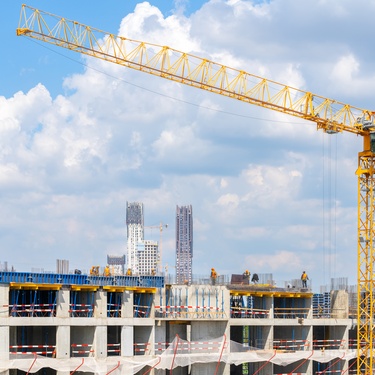
Many construction or heavy lifting projects greatly benefit from having a crane on-site. They’re beneficial equipment for lifting heavy loads, reaching certain heights, or managing complex builds. However, there are a lot of things to consider before renting a crane. Follow these steps to make sure you obtain the right machinery and get the most out of your investment.
Assess Your Project Requirements
The first thing you should do is plot out the specific demands of your project. Consider what types of machinery or materials you need to load, how heavy they are, and how high you need to lift them. Does your project involve working in tight spaces or loading things of unusual shapes?
It’s also a good idea to consider the timeframe for your project. Will you require the crane for a few days or several months? Having a clear understanding of these parameters can help you determine what type of crane you need for the job. Communicate this information with relevant parties so they can work within your specific needs.
Evaluate the Crane Size and Type
Using a crane of the wrong size can lead to delays, ineffective movements, or safety hazards. If the crane is too small, it may struggle to handle the weight, while an oversized crane could incur unnecessary costs and logistical complications. Knowing how to calculate the right crane size for your project can help you avoid a lot of these hassles.
Understanding what type of crane works best for your job whether it’s a rough terrain crane, crawler crane, or overhead crane, can make the difference in job efficiency. If you’re ever unsure, you can consult with a rental company and explain the details of your job to get a professional opinion about what size and model can work best for your needs.
Consider Site Preparation and Safety
Another thing to consider before renting a crane is the working conditions of the site itself. You may need to stabilize or support the terrain before bringing a crane out there and work around any environmental hazards such as power lines.
Beyond the physical setup, ensure you comply with local regulations and obtain any necessary permits. Prioritize safety measures by confirming that the rental includes thorough maintenance records and that operators are certified to handle the equipment.
Thoughtful planning and research into each of these considerations will help you secure the ideal crane rental for your project. Take the time to evaluate these factors thoroughly, and your construction process will benefit from smoother operations and better overall efficiency.
Bio: Casey is a passionate copyeditor highly motivated to provide compelling SEO content in the digital marketing space. Her expertise includes a vast range of industries from highly technical, consumer, and lifestyle-based, with an emphasis on attention to detail and readability.
